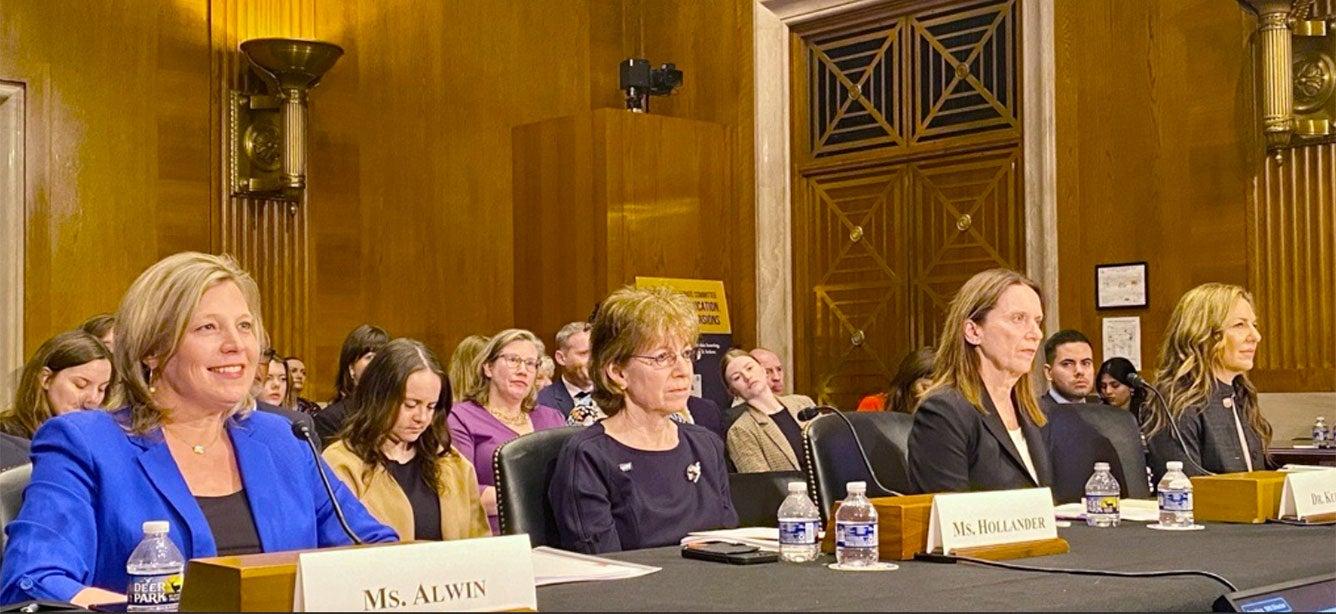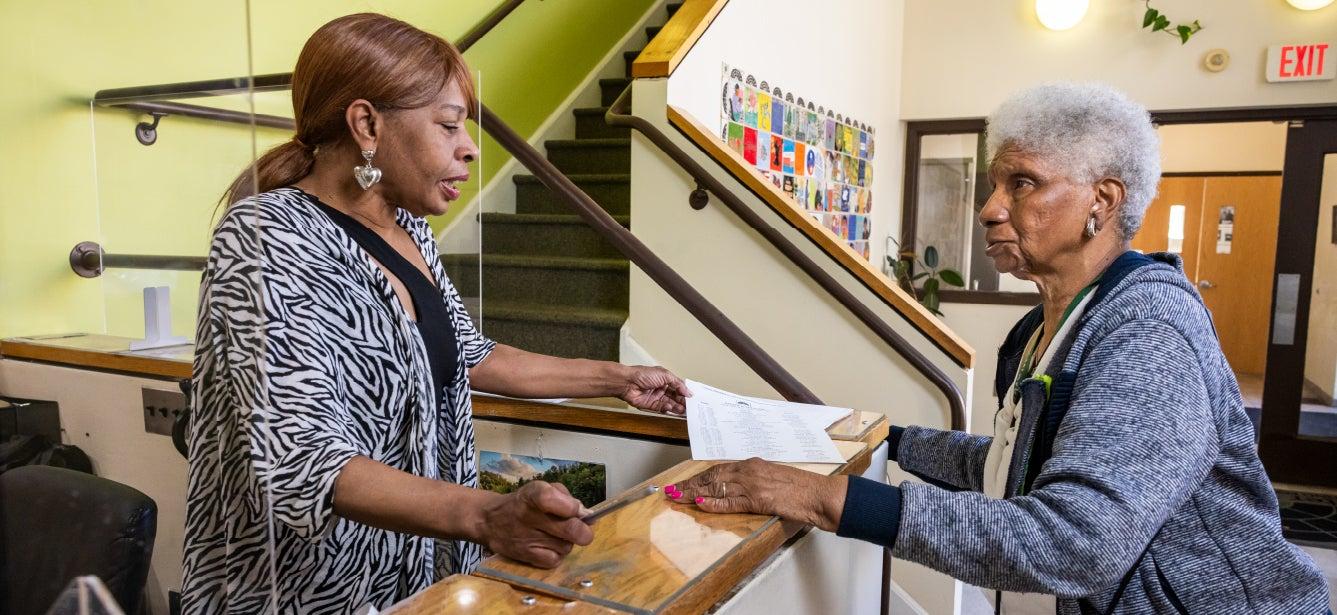Ramsey Alwin Testimony on How the Older Americans Act Supports Efforts to Meet the Needs of Older Adults
15 min read

Related Topics
Supporting healthy aging, economic security, and senior centers are NCOA priorities for this year's Older American's Act reauthorization. On March 7, NCOA President and CEO Ramsey Alwin testified before the U.S. Senate Committee on Health, Education, Labor & Pensions and stressed the importance of modernizing the law to meet the needs of today's older adults.
Why is Older Americans Act Reauthorization so important?
As Alwin said in her testimony, "Reauthorization of the OAA provides a critical opportunity to strengthen and revitalize its many important provisions. Previous bipartisan reauthorization efforts have created innovative new programs that have significantly improved the lives of older adults, their caregivers, and the Aging Network."
Those innovations have included creation of the National Center for Benefits Outreach and Enrollment, which supports a network of community-based organizations that find and enroll low-income beneficiaries in benefits programs they are eligible for. Thanks to this work, from 2022-2023, 9.3 million low-income older adults and peole with disabilities were connected to benefits that enable them to afford prescription drugs and other needed health care, as well as food and energy assistance.
What priorities does NCOA want to see in the OAA reauthorization?
In her testimony, Alwin gave specific recommendations aobut what should be included in this year's OAA reauthorization to support:
- Senior Centers: (1) Address lessons learned from the pandemic related to promoting equitable access to senior center services, addressing diverse needs, and pursuing innovation in nutrition programs; (2) Ensure strong congregate settings in the community by reinstating a separate title for senior centers and updated language that retains the “special consideration” of senior centers as designated focal points and by strengthening support for multipurpose senior center infrastructure and services, while allowing for the flexibility capacity for virtual connections; (3) Strengthen the authorization for modernizing senior centers; (4) Increase the authorization level of senior nutrition programs to allow for greater parity for both home-delivered meals and congregate meals approaches to be equally funded at scale.
- Title III-D Health Promotion: (1) Double authorized funding levels for OAA Title III-D to support the licensing, training, technology, and other costs required for implementation of evidence-based programs and (2) Expand the continuum of programs funded under the OAA to include those that are “evidence-informed.”
- Direct Care Workforce: Strengthen authorities for sustained funding for the Direct Care Workforce Strategies Center beyond five years to increase dissemination of state technical assistance and training opportunities to ensure an adequate and well-trained direct care workforce.
- Economic Security: Modernize and increase flexibility in the determination of economic need with proven tools such as the Elder Index to ensure the local cost of living are addressed as future generations are expected to age with limited financial resources.
- Older Workers: (1) Update SCSEP eligibility to make it available to adults 50 years and older and (2) Adjust income eligibly guidelines to allow for individuals with incomes at or below 200% of the federal poverty level to improve access for older workers struggling with financial security and employment.
Through OAA Reauthorization, Congress has an opportunity and obligation to provide the focus and funding that will ensure that a modern senior center—one that addresses the needs of current and future generations of older adults in a way that is culturally meaningful—is available in every ZIP code."
She also called for increased funding because "While demand for OAA services is growing and diversifying, OAA funding is not keeping pace. This financial reality has made it increasingly difficult for the Aging Network to maintain existing services, let alone expand."
Get more details about each of NCOA's OAA reauthorization priorities in Alwin's written testimony submitted to the Senate committee prior to the hearing:




